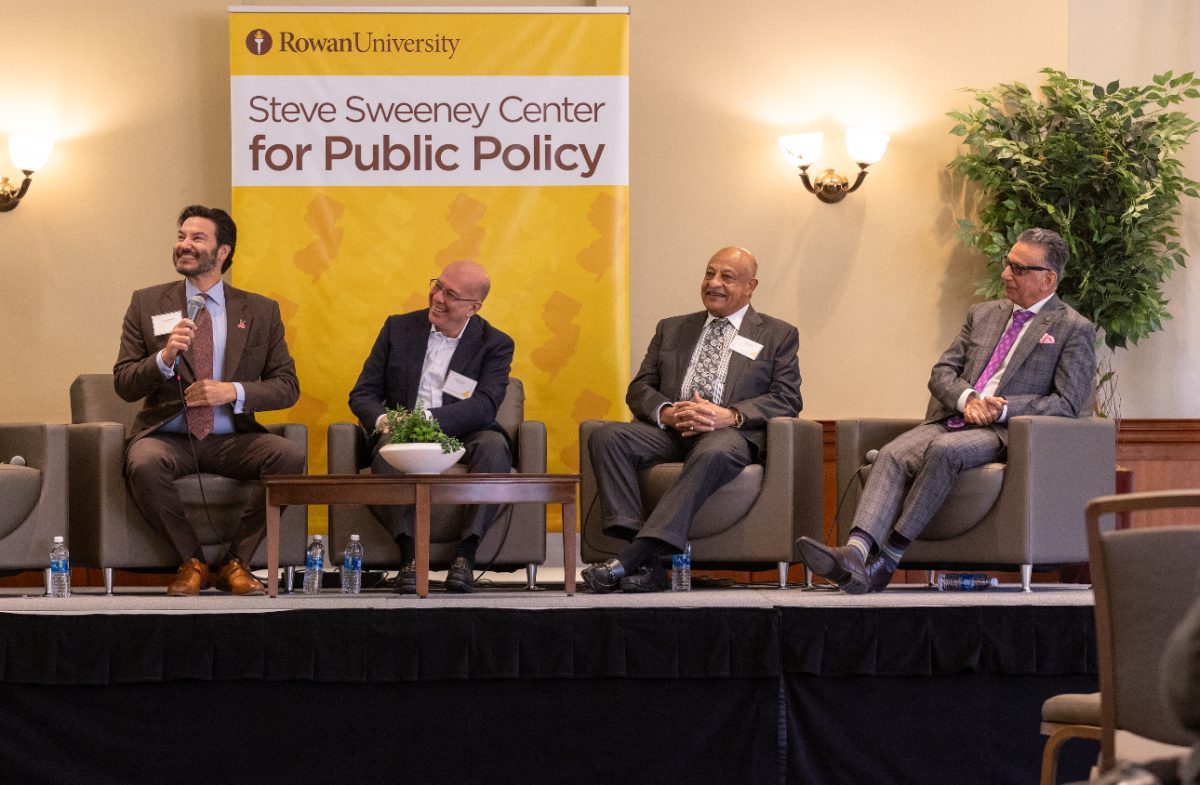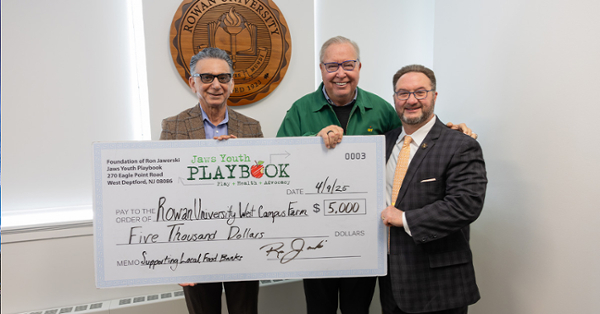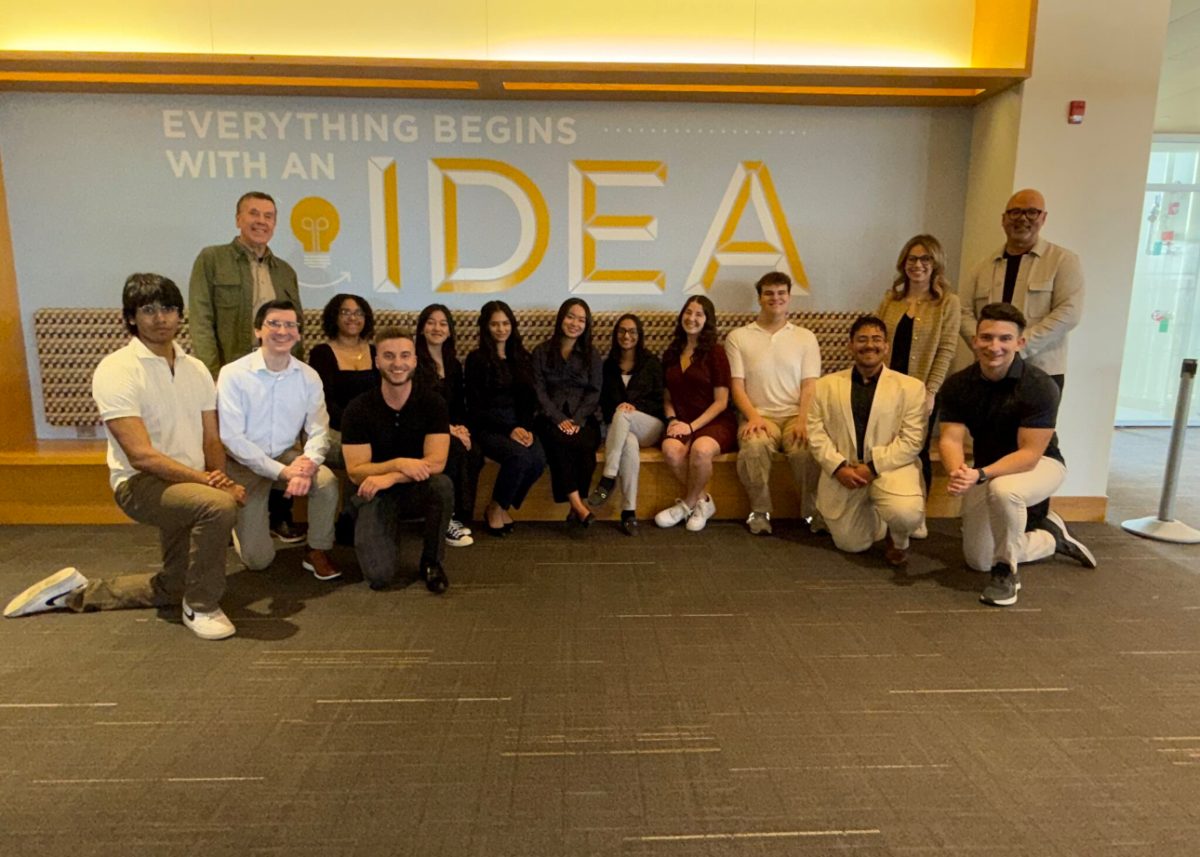Rowan University’s Steve Sweeney Center for Public Policy held its Restructuring Higher Education in New Jersey: Thirty Years of Change, Future Challenges conference in the Enyon Ballroom on Oct. 15.
The conference was aimed at analyzing and evaluating the impacts of the 1994 Higher Education Restructuring Act, 30 years after it was first implemented.
The act, implemented by former Governor Christine Todd Whitman, decentralized higher education in New Jersey, eliminating the Department and Board of Higher Education and creating the New Jersey Commission on Higher Education in its place.
Speaking at the conference were a number of different university presidents and high-ranking state officials who deal primarily with education. This included the keynote speaker Brian K. Bridges, PhD, the Secretary of Higher Education.
He spoke on the struggles in higher education in the modern day, as well as the challenges that are likely to be faced by New Jersey institutions in the coming years, as an enrollment cliff is predicted by experts to begin in 2025, due to a decline in the number of 18-year-olds within the state.
“We must think differently. We must act differently. Why? In order to survive, the institutions that not only survive but thrive are those that will be agile, flexible, and that work to diversify and strengthen alternative student audiences,” said Bridges.
The first panel was titled “Panel I: Thirty Years Under the Higher Education Restructuring Ac,” and featured the presidents of Rowan, Montclair, and New Jersey City universities, as well as the former president of Thomas Edison State University. They all discussed the history and impact the act has had in the 30 years since it was implemented.
The panel was moderated by Sweeney Center director Mark Magyar.
George Pruitt, PhD, president emeritus and board distinguished fellow of Thomas Edison State University, opened the discussion by giving historical context.
“The state needs to have oversight, but it also needs to work with the leadership. It needs to intervene where the leadership and the trustees have failed. It needs to support the leadership that knows how to manage and scarcity,” said Pruitt, speaking on finding the balance in managing higher education since the 1994 decision.
Rowan president Ali Houshmand, PhD, spoke on the growth of Rowan in the past three decades under the Act, the investment in the local community, and the importance of a university having a strong board.
“I can confidently tell you that Glassboro is one of the wealthiest municipalities in the state of New Jersey in terms of resources, and these are the powers that we can have if you’re given the authority but held accountable,” said Houshmand.
Senator Joe Cryan spoke during the last panel of the evening. He is the Senate Higher Education Committee Chairman and has been a part of the New Jersey Senate since 2018.
Cryan expressed joy and appreciation for the changes being made on campus, along with the campus’s vibrancy, but also addressed the upcoming challenges and actions that need to take place for the future of higher education.
Cryan addressed the inactivity of the committee and how there is a new effort being put into its partnerships and priorities.
“It’s a committee that has been dormant for, quite frankly, a couple years,” said Cryan. “There’s work to do and there’s work to catch up on. Our priorities so far, I hope, have shown that. We intend to work in partnership with our assembly colleagues.”
He also addressed what he believes is a critical time in higher education, where change is inevitable, and challenges will arise.
“We are trying to weigh, in what I believe is a transformational time in higher education,” said Cryan. “I do believe that innovation and being able to look ahead is what’s going to define your success, and your students’ success for the years ahead.”
Cryan continued that there will still be challenges ahead, most notably the likely 10% decline in enrollment by 2035. He also mentioned that the student population will continue to be diverse, and likely become more diverse.
Cryan did not beat around the bush on whether he feels higher education is prepared all-around for the coming future and addressed his concerns as well.
“I have significant concerns whether all facets of higher education are prepared for this,” said Cryan.
Among the issues Cryan addressed were capacity, student support and whether or not it’s existent or not, and how this falls onto the higher education family to help overcome these shortcomings.
“I place a lot of emphasis on whether graduation rates are real, and whether students actually are in a culture of completion in the institution they’ve chosen,” Cryan said. “I believe it’s a huge factor in determining a university, a college, an institution’s success for the future, and when I look at those rates, I often see students support simply aren’t there, challenges aren’t met, they’re reflected in what I believe are poor performance in the higher-ed family.”
Some of Cryan’s solutions revolve around promoting New Jersey better so more students come out-of-state, knocking a Sopranos joke in there as well.
“Why would a student from any other state come here, when they see our ads that talk about Tony Soprano in 2010. I think we need to emphasize our relationships, being tethered to New York, being tethered to Philadelphia,” said Cryan.
In the end, Cryan emphasized looking ahead, finding answers, embracing what’s to come, and not fearing the challenges ahead for higher education that will arrive relatively soon.
For comments/questions about this story DM us on Instagram @thewhitatrowan or email [email protected]
























































































































































!["Working with [Dr. Lynch] is always a learning experience for me. She is a treasure,” said Thomas. - Staff Writer / Kacie Scibilia](https://thewhitonline.com/wp-content/uploads/2025/04/choir-1-1200x694.jpg)













































